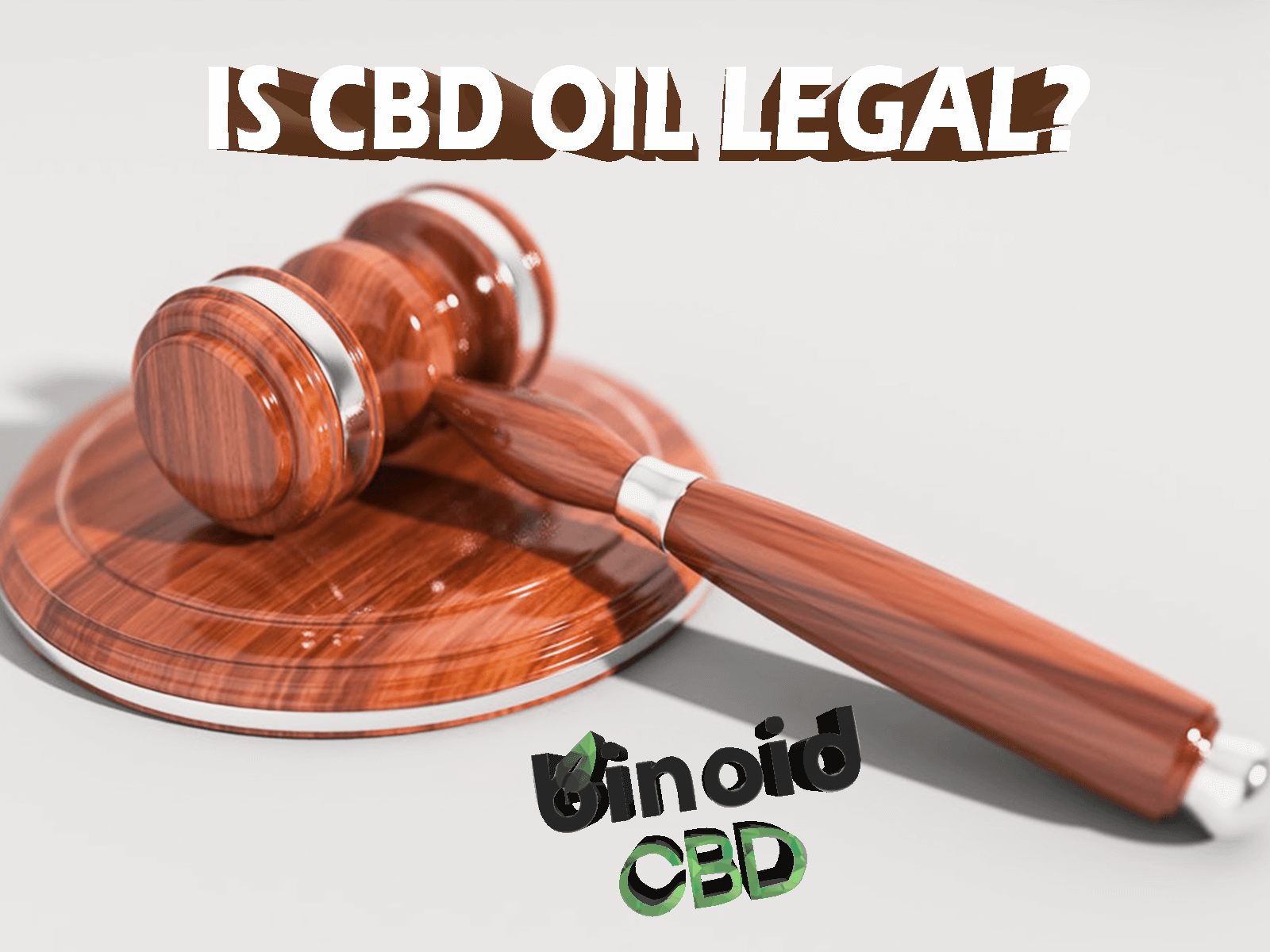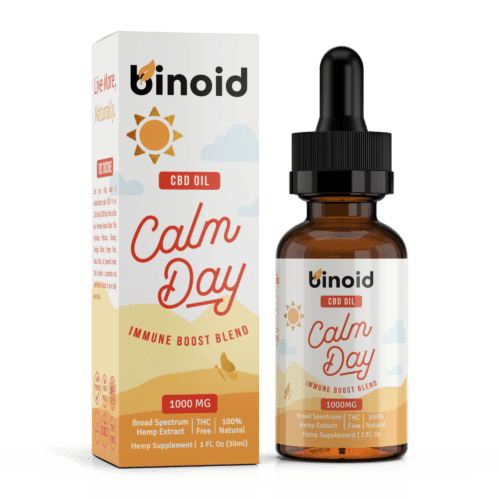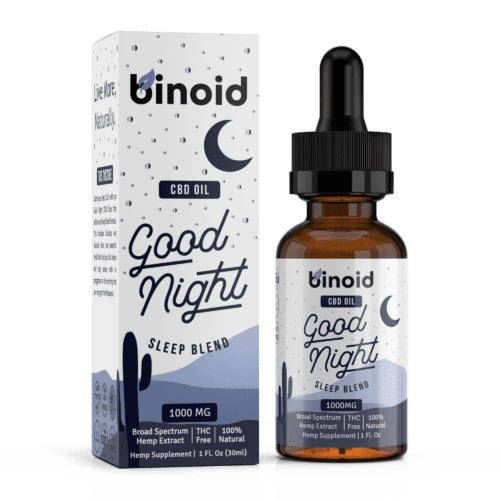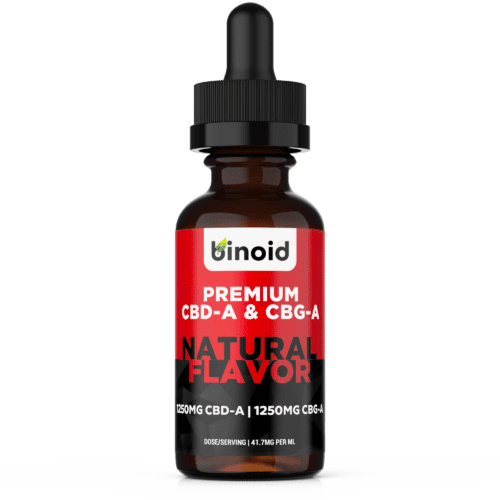
The Reason Why CBD Oil Is Legal
Question: Is CBD Oil Legal Federally In The United States?
The quick answer currently is yes, CBD oil is legal federally in all 50 United States. But it is very much in a grey area that can best be described as legal with a very large asterisk. This asterisk is due to a combination of problems that are preventing CBD oil products from being a normal supplement or dietary aid. Including its relationship with Marijuana, regulation of the way CBD is extracted from hemp, and FDA technical difficulties.
As the owner of a growing CBD brand, I will be providing an insider’s view of the history of cannabidiol, recent news for hemp-derived CBD federal legality, issues within industry regulation, as well as my point of view of future legality in the U.S.
To Buy CBD Products Click Here
-
Product on sale
 Binoid Calm Day CBD Oil – Immune Boost$28.99
Binoid Calm Day CBD Oil – Immune Boost$28.99$64.99
CBD oil is created through a long process that involves extracting CBD from either Cannabis plants, Marijuana and Hemp. We will be discussing CBD extracted from the Hemp plant, as this is the predominant plant in which the popular CBD oils are extracted from. This is because hemp contains a higher percentage of CBD than Marijuana. Making it more ideal for CBD extraction.
The story of the hemp plant itself dates back as far as 10,000 years ago as a part of pottery and garments in ancient civilizations. Though CBD was a staple in ancient civilization, the mid 20th century saw structural obstacles such as the Marihuana Tax Act in 1937, which subsequently destabilized hemp farming.
During World War II, the attack on Pearl Harbor cut-off imported hemp supplies from the Philippines, as hemp could be used to make items such as ropes and paper. This lead to a temporary legalization of hemp until the late 1960s, when the federal government put in place the Controlled Substance Act of 1970, reclassifying hemp in the same category as Marijuana. Making hemp equally as illegal. There hemp sat patiently waiting for the day of legal justice and re-classification away from Marijuana again.
In the United States, this occurred in 2014, when then President Barack Obama signed the 2014 Farm Bill. Opening the door to hemp farming and growing, and beginning the CBD industry boom we are currently witnessing today. Within the 2014 Farm Bill, section 7606 stated that “industrial hemp” was legal to grow for pilot programs and research purposes. The reason for was to study whether hemp farming could be valuable to the American farmers, businesses and economy.
The Farm Bill classified hemp as any part of the plant “Cannabis sativa L.” that contains less than 0.3% delta-9 tetrahydrocannabinol (THC) on a dry weight basis. However, the hemp plant itself contains this amount or less naturally. However, the oils, creams, gummies and other products we see today coming from hemp-derived CBD can only contain 0.3% THC based on percentages.
However, the 2014 Farm Bill was only valid for four years, and in 2018 there was various buzz surrounding hemp and whether the Farm Bill would be extended or improved. There was a large hemp and CBD “movement” that was pushing the complete legalization of hemp. And Senate majority leader, Senator Mitch Mcconnell of Kentucky was leading the charge. The word around the industry during the negotiations of the new U.S. Farm Bill hinted complete legal separation of the Hemp plant from Marijuana.
This meant that the regulation of Hemp would not be classified as a Schedule 1 substance, and would be moved to a normal agricultural crop and commodity. The maximum amount of 0.3% of CBD still stood, but it opened more doors for the industry. However, the Bill still had to be signed by the Senate, United States House and finally the President. Sparing political details, the Hemp section of the 2018 Farm Bill won by an overwhelming majority.
-
Product on sale
 Binoid Good Night CBD Oil – Sleep Blend$28.99
Binoid Good Night CBD Oil – Sleep Blend$28.99$64.99
What is in the new Hemp section of the Farm Bill?
The section regarding hemp removed the overall hemp plant permanently from the Controlled Substance Act (CSA) from a DEA Schedule 1 drug to an agricultural commodity. In other words, hemp moved from a list containing Ecstasy and LSD, to a list containing corn and cotton. That’s how big the change was. The ripple effect of this reclassification meant that hemp farmers now obtained rights to grow, conduct commerce and distribute the crop. As well as qualify for USDA certification programs, grants and federal crop insurance.
The reclassification of hemp was also significant in another way. It moved jurisdiction of hemp and CBD from the Food and Drug Administration (FDA) to the Department of Agriculture. Initially, starting in 2014, the FDA was highly skeptical of CBD, and disliked how many companies were falsely, incorrectly, and illegally branding hemp-based CBD products as “magical fixers” for severe problems such as cancer, tumors, seizures etc…
The FDA acted harshly against any brand that made a medical claim about CBD, especially with the limited current research. And also stated that CBD products such as oils, gummy bears (gummies), capsules and more were not “dietary supplements” as companies turned to stating once they could no longer make medical claims.
The term “dietary supplement” is not applicable, or is misleading for CBD products because the word “supplement” infers that you have a deficiency of some type of vitamin, nutrients, or chemical and that product is supposed to restore or add onto your current levels. Such as Vitamin C tablets. Our body currently does not lack CBD, therefore CBD products cannot be labeled as dietary supplements.
This is why there is increasing pressure for the FDA to come up with regulations and standards for the industry because it is currently the wild west. Some brands mislabeled the ingredients of CBD, calling it “hemp oil” or “hemp extract” instead of CBD in order to gain advantages selling on sites such as Amazon, which currently bans the sale of all CBD products. Therefore any products you see on Amazon are not supposed to contain any CBD. However, many of them do. This is one small example of a massive issue regarding the industry today. And is a major reason CBD is still on the border of legality in the U.S.
Now this moves onto an even more technical issue. If hemp is legal, does that automatically make CBD legal. According to FDA, not so fast. Because CBD is not strictly regulated. This is another layer that just adds to the overall confusion of CBD products. As just because hemp is legal, does not mean CBD slides right past FDA control. Which is what makes new legislations even more important. However, the recent resignation of the chief of the FDA might put a halt to CBD regulation. At least temporarily.
Overall, hemp and CBD itself is not illegal. However, there are a few different obstacles preventing hemp-derived CBD and CBD products from being 100% out of a gray area. The solution will come with time and increased oversight and regulation. For now it is the wild west, but there are a few companies that have legitimate products. We suggest watching out for the ways that the products are branded, and how companies describe them.
There is a fine line of hemp CBD legality. However, the products themselves are completely legal. Most of the issues lie within the companies and brands themselves for how they market their products. That is why it is extremely important to find a trustworthy CBD store that is transparent about their products and gives you access their lab test reports. Binoid CBD put all of our lab reports on every product page on our store. To make them easily available to our customers.


